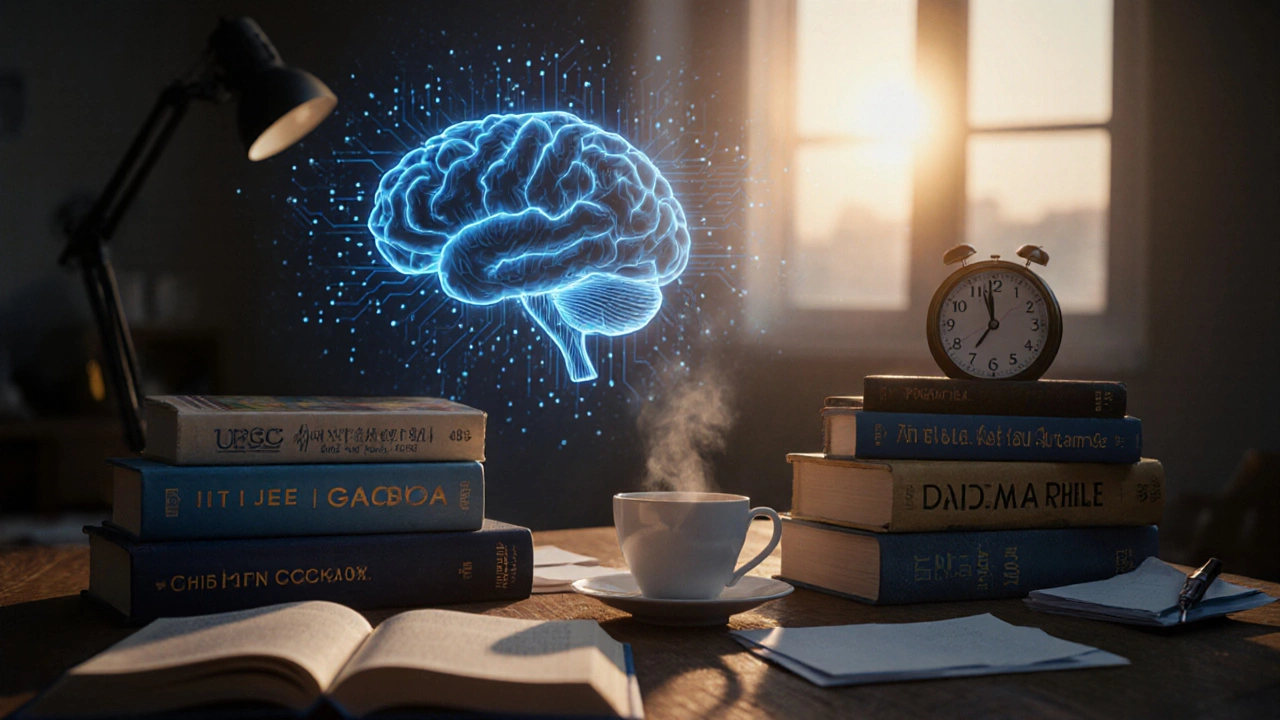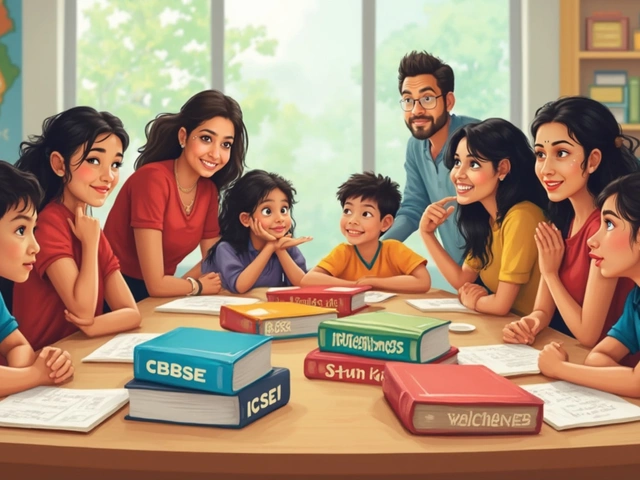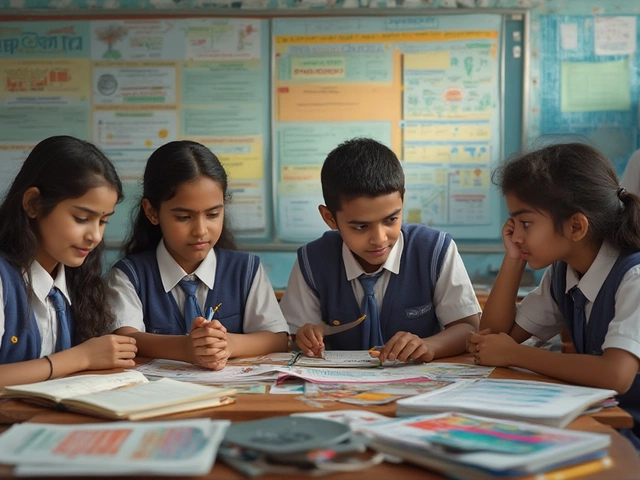
Toughest Exam Comparison Calculator
Which Exam is Hardest for YOU?
Customize your assessment by adjusting the importance of key difficulty factors. We'll calculate which exam is toughest based on your priorities.
Your Priority Weights
How It Works
We calculate a difficulty score for each exam based on your weights. Higher scores mean more challenging exams.
Each metric is scaled from 0-100 points based on article data. For example, pass rate is inverted (lower = higher score).
When you ask yourself, "Which is the 1 toughest exam?", you’re really asking which test pushes candidates to the absolute edge of knowledge, stamina, and mental grit. The answer isn’t a simple one‑liner - it depends on how you measure difficulty, where you look, and what stakes are involved. In this guide we break down the key factors that make an exam brutal, profile the exams that consistently rank at the top of the "hardest" lists, and give you a practical comparison so you can see why each one earns its reputation.
How Do We Define "Toughest"?
Before naming any single exam, we need a clear yardstick. An exam can feel impossible for many reasons, so we score them on five objective criteria:
- Pass rate - the lower the percentage of successful candidates, the harder the bottleneck.
- Syllabus breadth - how many subjects and topics are covered.
- Preparation time - typical hours of study required to stand a chance.
- Exam format - multi‑stage, adaptive, or with high‑stakes viva components.
- Career impact - how much the result changes a person's professional future.
Using these metrics we can compare disparate tests across continents while keeping the analysis fair.
The Global Heavyweights
Below you’ll find the exams that consistently top the difficulty rankings. Each entry starts with a micro‑data definition so search engines can recognize the entity.
UPSC Civil Services Examination is India's premier recruiting test for the Administrative, Police, and Foreign Services, renowned for its massive syllabus and multi‑stage format. Over 1 million aspirants sit for the preliminary paper each year, yet only around 2 % clear the final interview. Preparation typically demands 2,000‑3,000 hours of study across history, polity, economics, geography, and optional subjects.
IIT JEE Advanced is the gateway exam for India's top engineering institutes (Indian Institutes of Technology), famous for its intense problem‑solving focus in physics, chemistry, and mathematics. With a pass rate hovering near 1 %, candidates often spend 4-5 years mastering concepts and practicing past papers, averaging 5,000 hours of focused study.
Gaokao is China's national college entrance exam, a 750‑point test covering Chinese language, mathematics, and a choice of sciences or humanities. The national pass rate for top‑tier universities is under 5 %, and students usually attend supplemental "cram schools" for up to 12 hours a day during the final year of high school.
USMLE Step 1 is the first United States Medical Licensing Examination, testing basic medical sciences and regarded as a make‑or‑break hurdle for aspiring physicians. The average pass rate is about 96 % but a score below 230 severely limits residency options. Most candidates devote 300‑400 hours of focused review, often using commercial prep courses.
Chartered Financial Analyst (CFA) Level III is the final stage of the CFA charter, emphasizing portfolio management and ethics, and known for a sub‑40 % pass rate. Candidates typically invest 300‑350 hours of study, balancing complex case studies with rigorous ethics scenarios.
Bar Exam (United States) is the licensure test for attorneys in each U.S. state, featuring multiple‑choice, performance, and essay sections that assess comprehensive legal knowledge. Nationwide, pass rates range from 45 % to 80 % depending on the jurisdiction, and many candidates spend 6‑8 months in intensive preparation.
CPA Exam is the Certified Public Accountant examination in the U.S., comprising four separate sections that together cover accounting, auditing, regulation, and business concepts. With an overall pass rate near 50 %, test‑takers usually aim for 300‑400 study hours per section.
Side‑by‑Side Comparison
| Exam | Pass Rate | Syllabus Breadth (subjects) | Typical Study Hours | Stages / Format | Career Impact |
|---|---|---|---|---|---|
| UPSC Civil Services | ~2 % | ≈ 12 (including optional) | 2,000‑3,000 h | Pre‑lims, Mains, Interview | Entry to elite admin & diplomatic roles |
| IIT JEE Advanced | ~1 % | 3 (Physics, Chemistry, Math) | 4,000‑5,000 h | Two papers, 3 h each | Admission to top engineering institutes |
| Gaokao | ~5 % (top‑tier uni) | 3-4 (language, maths, sci/humanities) | 10,000‑12,000 h (including school) | One‑day, 9 h total | Placement at elite Chinese universities |
| USMLE Step 1 | ~96 % (overall); score critical | Basic sciences (≈ 8) | 300‑400 h | One‑day, 8 h computer‑based | Residency match prospects |
| CFA Level III | ~38 % | 2 (Portfolio mgmt, Ethics) | 300‑350 h | Two‑hour essay‑type | Access to senior finance roles |
| Bar Exam (US) | 45‑80 % (state‑dependent) | ≈ 12 (law subjects) | 400‑600 h | Multistage, multiple‑choice + essays | Legal practice license |
| CPA Exam | ~50 % | 4 sections (Auditing, etc.) | 300‑400 h per section | Four separate 4‑hour sessions | Certified accountant credential |
What Makes an Exam Feel “Impossible”?
Even if two exams have identical pass rates, the candidate experience can differ wildly. Here are three hidden factors that turn a tough test into a nightmare:
- Psychological pressure: Multi‑stage exams like UPSC include an interview that tests personality, adding a non‑academic stressor.
- Information overload: Gaokao combines high‑school curriculum with intense time pressure, leaving little room for error.
- Score‑centric cultures: In the U.S., a low USMLE Step 1 score can close doors regardless of the eventual pass/fail outcome.
Understanding these pressures helps you design a preparation plan that tackles both knowledge gaps and mental stamina.
Preparation Playbook: Strategies That Work Across the Hardest Exams
- Start early and build a roadmap. For exams demanding 3,000+ hours, break the journey into yearly, quarterly, and weekly goals.
- Use active recall. Flashcards, practice tests, and teaching concepts to a peer lock information in memory better than passive reading.
- Simulate the real environment. Time‑boxed mock papers, full‑day study marathons, and even replicating the exam venue (e.g., sitting at a desk with no distractions) reduce anxiety on test day.
- Prioritize high‑yield topics. In UPSC, for example, modern Indian history and polity provide the biggest scoring boost per hour spent.
- Take care of the body. Sleep, nutrition, and short exercise breaks improve retention, especially during the long prep phases of IIT JEE Advanced.

Common Pitfalls & How to Avoid Them
Even seasoned aspirants stumble. Spot the warning signs early:
- Over‑reliance on one resource. Mixing standard textbooks with reputable question banks prevents tunnel vision.
- Neglecting weak areas. The “easy” subjects feel safe, but low scores there can kill a cumulative percentage.
- Skipping mock exams. Practice under real conditions reveals time‑management flaws that you can’t see in isolated study.
Quick Checklist Before You Register
- Verify eligibility and age limits (e.g., UPSC requires Indian citizenship).
- Calculate total estimated study hours and map them to your calendar.
- Gather official syllabus documents - they’re the only source of truth.
- Choose a primary prep resource and at least two supplemental question banks.
- Schedule a full‑length mock at least 3 months before the exam date.
Final Thoughts
There isn’t a single champion that beats every other test in every metric. If you measure pure selectivity, the toughest exam is likely the UPSC Civil Services, with a 2 % pass rate and a three‑stage marathon. If you value sheer study hours, Gaokao tops the list. The key takeaway? Each of these exams demands a disciplined, long‑term strategy that balances knowledge, stamina, and mental resilience.
What is the overall pass rate for the UPSC Civil Services Examination?
Only about 2 % of the roughly 1 million candidates clear the final interview stage each year.
How many hours should I plan to study for IIT JEE Advanced?
Top aspirants typically spend 4,000‑5,000 hours over three to five years, focusing on problem‑solving practice.
Is the Gaokao easier if I choose the humanities track?
The humanities track reduces the math component but adds intensive Chinese literature and history, keeping the overall difficulty comparable.
What score on USMLE Step 1 is considered competitive?
A score above 250 places you in the top 10 % of examinees and opens doors to most residency programs.
Can I retake the CFA Level III if I fail?
Yes, candidates may attempt the CFA Level III up to two more times, but each attempt requires paying the exam fee again.





